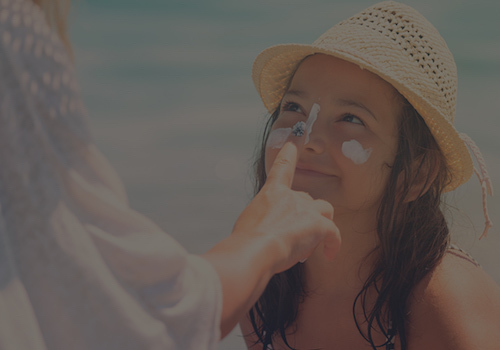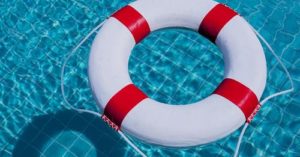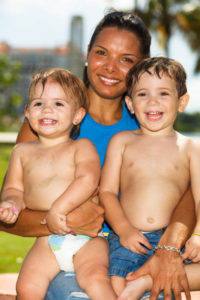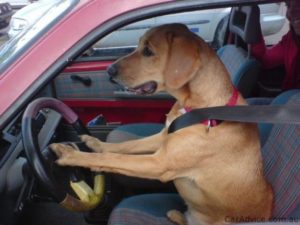Yearly Archives: 2023
Sun Safety Tips for Au Pairs from Macroni Kids

Everyone loves summer, especially children.
But while you’re planning some family fun in the sun, be sure to make safety a top priority. Accidents are the leading cause of death for children ages 1 to 4 in the United States, and the summer months bring with them a unique set of risks.
Keep reading for 5 tips to keep your kids safe this summer.
#1: BE SMART WITH SUN SAFETY FOR KIDS
Sunburn, dehydration and sun or heat stroke are among the hot-weather risks parents need to be aware of when young children are playing outside.
- Sunburn. Apply sunscreen with an SPF of 15 or above, at least 30 minutes before letting children go outside.
- Reapply every 2 hours, or after swimming or sweating.
- The sun’s UV rays can penetrate clouds, so you still need protection on overcast days.
- Have kids wear protective gear, such as sunglasses with UV protection, a hat and tight-knit cotton clothing.
- Dehydration. Provide plenty of water when kids are engaged in outdoor activities, and avoid sugary or caffeinated drinks.
- Sun or heat stroke. Plan outdoor activities for earlier in the morning or later in the afternoon when possible. It’s safest to stay indoors between 10 a.m. and 4 p.m., when the sun’s rays are at their strongest.
Babies are at greater risk from excessive sun exposure. Protect your infant with lightweight clothes with long sleeves and legs, a wide-brimmed hat, and a lightweight blanket. Apply baby sunscreen, and choose a stroller with a large canopy to shield those harmful rays.
#2: COOL OFF WITH WATER SAFETY FOR KIDS
According to the Centers for Disease Control and Prevention, drowning is the leading cause of injury death for children ages 1 to 4 in the U.S., and over half of all drownings occur in the summer.
Adult supervision and other water safety habits are essential, whether you’re planning a trip to the beach, a day at the lake or just an afternoon splash in the neighborhood pool.
- We really cannot emphasize this enough: there is no substitute for adult supervision. Never let children swim without an adult or lifeguard on duty.
- Inflatable swimming aids such as “floaties” provide a false sense of security. Keep young children within arm’s reach at all times while in or near water.
- Never leave children unattended at the pool for any reason — that includes turning your head to answer the phone, read a book or converse with other adults.
- Likewise, never leave children unattended in a hot tub.
- Obey all posted rules at public pools or other swimming areas — especially those pertaining to running and horseplay. Keep wheeled toys away from the water’s edge. Observe all diving rules.
- If you have a pool at home, keep it securely covered when not in use, and protect it with a childproof fence and locking gate. Don’t allow diving from the side of the pool. A hot tub should have a locking lid.
- Learn CPR and other First Aid so you’re prepared in the event of an accident.
- Children must wear a properly-fitting life jacket at all times while riding on a boat, and adults must never consume alcohol while operating a boat.
#3: PREVENT INJURIES WITH PLAYGROUND, CAR AND BIKE SAFETY
Summertime brings with it road trips and lots of outdoor adventures. Don’t let all those fun outings end in tragedy or a trip to the hospital.
- Car safety for kids. Never let kids ride in the cargo areas of pickup trucks or vans. Children under 12 should ride in the back seat, and be properly restrained in an appropriate child safety seat for their height and weight.
- NEVER leave children in a parked car, even for a few minutes. In Georgia heat, it only takes a few minutes for children to die in a car. “Look before you Lock”— what is in the backseat!
- Bike safety. Bicyclists of all ages, including kids, must wear a properly fitting helmet while riding a bike. Make sure your child’s bike is the right size, and teach him or her to obey all traffic rules while riding.
- Playground safety. As with other summertime activities, kids should always have adult supervision when having fun on the playground.
- Equipment should be firmly anchored and well-maintained. There should be shock-absorbing material such as rubber, gravel or wood chips, and equipment should be installed at least 6” from fences or sidewalks.
- Avoid clothing or accessories that could cause strangulation. These include drawstrings, necklaces or loose-fitting garments.
#4: BE CAREFUL WITH POISON IVY
Poison ivy, poison oak and poison sumac all contain urushiol, a rash-causing substance that produces an allergic reaction in 60-80% of all people.
You don’t even have to touch the plant to be affected. Urushiol can be transferred by touching another person or an article of clothing that has been in contact with an offending plant. If can also be inhaled if a poison ivy plant is burned.
You can reduce the risk to you and your kids by:
Learning to identify poison ivy, poison oak and poison sumac leaves
- Avoiding outdoor areas where you know poison ivy is present
- Wearing long sleeves and pants in areas where poison ivy may be present
- Washing skin as quickly as possible if exposure occurs
- Bathing and washing clothes after time outdoors
- Bathing pets who may have been exposed
Symptoms of poison ivy exposure include red, itchy, swollen skin and blisters.
- Call a doctor if your child develops a fever or any type of rash.
- The rash typically takes 1-2 weeks to heal.
- Treatment includes cool showers and soothing lotion to calm the skin.
- If your child has a severe reaction, your doctor may prescribe pills or creams to promote healing.
#5: WATCH FOR TICK BITES
Always check for ticks after you or your kids have been outdoors during the summertime. Removing the tick as quickly as possible reduces the risk of tick-borne illness such as Lyme disease.
- Don’t use petroleum jelly or a hot match. These don’t work and may cause the tick to burrow even deeper into the skin.
- Remove the tick using the following steps:
- Use tweezers to grasp the tick as close to the skin as possible.
- Pull firmly and steadily until the tick is removed.
- Don’t twist or rotate the tick.
- If part of the tick stays in, it will eventually come out on its own.
- Gently wash the affected area with soap and water.
- Call your pediatrician. He or she may prescribe antibiotics if your child is at risk of Lyme disease.
- Pay attention for symptoms of Lyme disease. Early treatment is crucial for long-term recovery.
- Red ringed rash around the affected area
- Red or irritated skin
- Flu-like symptoms
- Painful or swollen joints
- Facial paralysis
See full article at
Top 10 Tips – Host Family Guide to a Successful Vacation with your Au Pair.
Top 10 Tips – Host Family Guide to a Successful Working Vacation with your Au Pair.
As a host family, it is great to have your Au Pair along on a vacation. However, there are pitfalls that can happen One of the biggest issues is the danger that can be involved when no-one is clear about whose job it is to oversee the kids.
Here are 10 Tips for Vacationing with your Au Pair so that everyone has a great time, and the kids are safe!
- Tag, your it! I had a host family with 3 small children tell me that when it was the au pair’s turn to be
responsible for the children (and vice versa) they would tap hands so that there was no
misunderstanding who was in charge. What a great idea! - Yes, a schedule is needed! A few summers ago, I received 2 calls on the same day. One was from a host mother saying that they just returned from vacation and their Au Pair did not work at all and one was from the Au Pair in this family saying she worked all day every day! How interesting is that? Be sure to give your Au Pair a schedule of when she is working so that she knows when she is off – just like home. It is important for her to know when she can go relax at the beach – without having to ask if she is free. Make a tentative schedule and discuss your expectations ahead of the vacation. It is always possible to readjust when you are there.
- Travel time/Work time?
Do you consider travel time to be your au pair’s work time, or can she put her earbuds in and take a nap? This is something you want to define ahead of time. - Lazy days! Vacation can bring different behaviors from children – especially children that
will not do well when there is no routine. Talk to your Au Pair about your children and the things you found have worked on past vacations. If you like to have a routine on vacation let her know that, too. - Pool Safety! If vacationing at the beach or around a pool be sure to talk to your Au Pair about
how long they can stay at the pool, how often should sunscreen be reapplied, do you want your Au Pair in the water or is it okay to sit on the side of the pool? Please do not assume your au pair knows your expectations. - Who is the Boss?
Often summer vacation includes extended family. Can Grandma and Grandpa change the
schedule for the day? Make sure your Au Pair knows who gives her responsibilities for the day and communicate that to all parties involved. - Where did all these kids come from?!
Are you vacationing with your kids, your brother’s kids, and your sister’s kids, and do they expect your Au Pair to watch them, too? The Au pair can decide that this is too much for her. If playdates during the trip will be arranged, parents may need to assist the Au pair with childcare during times with large numbers of kids, especially around water. - Traveling internationally?
The DS-2019 form must be signed for any international travel ( if to the Au pair’s home country). This process takes 3-4 weeks. See the Travel Validation form on our blog for how to do this. Plan ahead! It is the Aupair and Host family’s responsibility to research what visa will be needed to enter the country you will be traveling to. Any costs related to a delayed return to the USA are not paid by APIA. - Roomies? Will your Au Pair have a private space on vacation? Make sure you discuss ahead of time what the accommodations will be on the trip so that you eliminate any surprises (your Au pair should have a private bedroom).
- Safety First!
Communication with your Au Pair is paramount on vacation. When you are all in unfamiliar
surroundings with different schedules and different expectations – things can go wrong. Be sure that the safety of your children is number one in everyone’s mind. Take a tour of your surroundings and discuss any concerning issues. Making sure everyone knows whose turn it is to watch for the kids and what they are watching out for. These tips can ensure a successful vacation with memories to last!
Taking An Education Course Is Important!
 The education component of the Au Pair program is a requirement of the State Department of the United States. The State Department gives authorization for all Au Pair programs to exist. When an Au Pair does not achieve her requirement, this puts all Au Pair agencies at risk. Completing your education hours is an important part of being an Au Pair and is required by your contract with Au Pair In America. Taking a course will provide yet another level of experience during your year and yields many skills that you can use to further your personal goals. You may also make new friends and professional contacts! I hope you enjoy your educational courses. If you need assistance finding a course or have questions, please call or email your counselor.
The education component of the Au Pair program is a requirement of the State Department of the United States. The State Department gives authorization for all Au Pair programs to exist. When an Au Pair does not achieve her requirement, this puts all Au Pair agencies at risk. Completing your education hours is an important part of being an Au Pair and is required by your contract with Au Pair In America. Taking a course will provide yet another level of experience during your year and yields many skills that you can use to further your personal goals. You may also make new friends and professional contacts! I hope you enjoy your educational courses. If you need assistance finding a course or have questions, please call or email your counselor.
Some Important Tips:
Any course can be taken as long as it is taught by an accredited USA college, university, or technical college. Only those schools approved by the State Department can be accepted. All of the schools listed on your Blog site are approved. Please have your counselor approve any class before registering.
- Your counselor can clarify any questions about a school.
- Volunteer hours do not count towards your educational credits unless it is part of a hybrid or in-person accredited college class.
- Weekend courses do count if the course is part of a college or university. Some places offering weekend courses are not accredited. Ask your counselor before signing up.
- Classes should be in person. Permission for one online class can be given, if the schedule does not permit in-person classes, or the type of class you wish to take is not available or is not affordable.
- Only one online course per semester is allowed. If you submit two certificates with the same semester timeframe, only one class will be accepted.
- A great option for one online course accepted by the State Dept is the Au pair Advantage class offered by UCLA.
- A hybrid online class will be accepted IF there is also an in-person component to the course.
- All colleges, universities, and technical schools must be accredited and within the USA.
- 72-80 hours of education are required for standard au pairs.
- 144-160 hours for Educare au pairs.
- For second and third-year au pairs, 36-40 hours is required for a six-month extension and 72-80 hours for a nine or twelve-month extension.
- Credits, hours, and CEUs are different. Count the hours you are in a classroom this must be 72 hours.
- At the end of your course, send your community counselor your documents showing the name of the school and the hours that you have achieved, along with the name of the class you took. This proof should also have your name. Check your certificate. Some certificates do not show the number of hours. If the hours are not present on the certificate, you will need a letter from the school stating how many hours you have achieved.
- All education must be achieved 45 days before the end of your Au Pair term.
- Send all certificates or proof of your classes to your community counselor.
- If you plan to extend, your education needs to be finished four months before the end of your term.
- Host families reimburse tuition costs and costs of related materials (books and supplies) up to $500 for the first year. EduCare companions are reimbursed up to $1000 for the first year. If it will cost you more than $500 (or $1000 for EduCare) to meet the requirement, you must pay the additional expense, so plan carefully.
- Your host family is required to provide transportation, including gasoline, parking, or public transportation costs (if applicable) to and from classes in your community. The cost of transportation is in addition to the $500/$1000 allocated to tuition and related fees. It is your host family’s responsibility to provide transportation or cover the transportation costs until you complete your educational requirement, even if the $500 education allowance has already been spent.
- After you finish 72 hours of education class, your host family is no longer obligated to support your desire to continue to attend classes.
- Some locations will not be accessible to your host address. The host family must agree to the location of a class as some will be too far for the host car to be driven.
- Once you have met the 72-hour requirement for the State Department, your host family is not obligated to pay out any remaining education monies not spent.
- To extend your first Au Pair term, you will need to have proof of 72 hours. Send the documentation to your community counselor as soon as possible. You should plan to have your education requirement finished at the time you request an extension. This happens approximately four months before the end of your first term. Au pair In America requires 72 hours to be able to extend your au pair term. Without 72 hours completed 45 days before the end of your term, Au Pair In America will not accept your application to extend and you must go home at the end of your first year.
If you want to extend and have not completed all of the hours, but you do intend to have them finished at least two months prior to the end of your first term, you will need to do the following:
1. Register for a class that will complete 72 hours of education at least two months before the end of your first term. All proof of education must be given to your counselor before your deadline to extend. As soon as your counselor can check off for the education requirement, your request to extend can be approved. Without the education requirement finished, you will not be able to start the interviewing process for your extension.
2. Send documents showing proof of your registration to your community counselor as soon as possible. This allows the office to submit your request to the State Department and upon approval, you can begin to interview with families. You must have a match before your year ends.
Your counselor is the best person to ask questions about your education requirement. Courses and colleges are constantly changing. Your counselor is always researching new and exciting courses that are appropriate for you. If you are aware of a new resource, please let your counselor know!
10 Tips for Vacationing with your Host Family
As an Au Pair, it is great to go along on a host family vacation. However, being in a different environment does not change your role as an Au Pair. Sometimes it does get confusing and one of the biggest issues is the danger that can be involved when no one is clear about whose job it is to oversee the kids.
Here are 10 Tips for Vacationing with your Host Family so that everyone has a great time, and the kids are safe!
1.
Tag, your it!
I had a host family with 3 small children tell me that when it was the au pair’s turn to be
responsible for the children (and vice versa) they would tap hands so there was no
misunderstanding about who was in charge. What a great idea!
2.
Yes, a schedule is needed! A few summers ago, I received 2 calls on the same day. One was from a host mother saying that they just returned from vacation and their Au Pair did not participate with childcare at all and one was from the Au Pair in this family saying she felt she was caring for the children all day every day! How interesting is that? Be sure to discuss your Au Pair schedule so that you know when you are off – just like at home.
3.
Travel time/Work time?
You must get there, right? Getting kids to relax on a long car ride or helping to get boarded on the plane, on time, can be stressful for all the adults! Travel time is not considered work time (unless you are the only person in charge of the children), however, being a kind Au Pair will mean that you cannot wear your earbuds and take a nap the whole trip. Look for ways to be helpful. This will make the travel time better for everyone.
4.
Lazy days! Vacation can bring different behaviors from children – especially children that
will not do well when there is no routine. Ask about any special routine that you will need to be aware of. Be prepared to be patient. Young children will not be themselves and older children who get to stay awake later may get cranky.
5.
Pool Safety! If vacationing at the beach or around a pool be sure to talk to your host family about how long the kids can stay at the pool, and how often should sunscreen be reapplied? What is the host parent’s expectation of your role at the pool or beach? Do you need to be in the water or is it okay to sit on the side of the pool? Please do not assume your role, get clear directions.
6.
Who is the Boss?
Often summer vacation includes extended family. Can Grandma and Grandpa change the
schedule for the day? If you are uncertain about a change made by someone else, reach out to the host parents to get clarification.
7.
Where did all these kids come from?!
Are you vacationing with the host family’s family and their children too? It is fun to be surrounded by family and have fun times. However, you can speak up if you are asked to care for more children than you feel comfortable with.
8.
Traveling internationally?
Two steps must be accomplished before you travel out of the USA. 1. You must determine if you need a visitor’s visa to enter the country that you want to visit. 2. And, your DS2019 form must be signed. Even, if you are going with your host family, your DS2019 form must be signed for travel. The original form must be mailed back to the office and signed. Then, it is mailed back to you. This process takes 3-4 weeks! If you are in your second year, the rules are different. Please make sure you are knowledgeable about the restrictions for year-year travel.
*Au Pairs who will be away from the host family’s primary address for more than three weeks should contact your community counselor to discuss this.
Year 1 International Travel Checklist
Year 2 International Travel Checklist
Automatic Revalidation Checklist
9. Roomies? Vacations are expensive. It may not be possible to have your own private room, but you should have your own private bed. Many times, an Au Pair will share space with the host children. Plans can be made so that you have the privacy to change clothes or rest by yourself. You should feel comfortable with your ability to have private time. If you do not feel comfortable with their plan, discuss your concerns with the host family before you leave.
- Safety First!
Little kids LOVE exploring a new environment, and everyone is excited and off guard. This makes an accident more likely to happen. An accident can only take a second to happen. Do what you can to prevent accidents; walk with the host parents around your vacation surroundings to discover issues that might be safety concerns. Stairsteps, upstairs windows, sliding doors, patios, and backyard pools all need special attention. Remember the safety of the children is always a priority even when you are off duty.
Working with your host family during vacation time can be tricky, and might require an extra dose of patience, but you will make memories of this experience that you will surely treasure. You can experience a new place within the USA and learn more about your host family during a relaxed time. Be thankful and express your appreciation to your host family that they chose to include you! Americans really appreciate when someone says “Thank you for taking me out to eat with you tonight. Or, Thank you for including me in this outing today.” This verbal expression of your gratitude will go a LONG way to reinforce your relationship with the host family!
Tips For Driving Safely During Your Au Pair Year
Au Pair Driving Tips. Keep Safe!
You have your Georgia Driver’s License and you are ready to drive!
Here are some important tips to keep you and those who drive with you safe:
The most important thing to remember is, to be honest with your host family. If something happens while you are driving, immediately tell your host family. Most hosts will forgive you, but if they discover that you did not tell them, this can lead to a rematch or you might even have to go home early.
Your host family may have some restrictions after you receive the Georgia license. Here are some common ones:
- Your host family should continue to provide support and practice time whenever possible.
- Learning to drive with confidence is a life skill. Along with the privilege of using your host family’s car comes responsibility. It is your shared responsibility with your host family to make every effort to learn to drive safely while you are an au pair. If you feel that you need additional instruction, you may want to consider paying for some lessons until you feel completely comfortable with your driving ability.
- Your community counselor can recommend a driving instructor/school and help coordinate lessons or an assessment. Some instructors may offer a discounted price for au pairs.
- Talk to your host family or community counselor if you have any concerns about driving. NEVER drive if you do not feel safe.
- NEVER, EVER… not even for a moment leave your host child in the car while you park and go inside a place.
Even after you obtain your Georgia Driver’s license:
Your host family will most likely restrict how far the car can go in the first weeks after obtaining a driving license. It takes time to earn your host family’s trust and to build your own confidence.
To reduce your risk of an accident drive by yourself only in the first month. After that restrict the number of friends in the car to only one other person.
Map out school zones or road work areas in your normal path of driving to avoid a large speeding fine.
Be very familiar with driving laws requiring you to stop for school buses. Review our video on the FB page.
Understand that driving and parking in downtown Atlanta is risky. There are currently large numbers of carjackings and smash-and-grab crimes occurring inside the city. Your host family may determine that driving this far is off-limits for their car.
Driving late at night is dangerous because of drunk drivers on the road. In Georgia, after 3am for every five cars that pass you, three of those five drivers have been drinking alcohol. Host families often have car curfews because of this reason.
New Driver Safety Tips:
Ask questions about the dashboard indicator lights. These are very important and some of them could indicate an urgent problem that would require you to pull over in a safe place and turn the car off.
BE aware that if you have one beer or one glass of wine or one mixed liquor drink and you drive within one hour—you will test positive for alcohol and can be charged with a DUI (driving under the influence of alcohol). Age 21 is the legal age to drink alcohol in the USA. If you drink alcohol while out, use Lyft or Uber to safely return home.
USA police departments make a lot of money when they find someone drinking and driving. They are LOOKING for any excuse to pull you over and test you. If you are arrested for driving while drinking, you or your family back home will need to get you out of jail. APIA will NOT get you out of jail. This is about $7000.00 and then you will need to go home.
If you damage someone else’s car, and no one is hurt, you still must call the police. You must stop, move the car, and exchange names and insurance info. Take pictures of the car and the damage you made and any damage other than yours on their car. If you have hit a parked car with no driver, take pictures and leave your name and the host family’s phone number. Failing to do these things, and not stopping is considered ” leaving the scene of an accident”. The penalty for this can be as much as five years in jail and several thousand dollars in fines.
Driving in the rain or on wet streets increases your likelihood of having an accident. Sometimes it is best to stay home if you know bad weather is on the way.
Make a system for checking behind the car before backing up. Use the rearview mirrors and backup camera, but also look behind the car before getting in. When in a driveway, look for children, dogs, shrubs, or toys. Most Au pair accidents involve backing up.
When entering a busy street or highway from a parking lot, look for the nearest exit with a traffic light and go there to enter the street. Trying to cross a busy street with no signal is dangerous.
At intersections, look twice before pulling out.
If someone is yelling or honking at you to enter a busy street or intersection, ignore them and wait until you are confident. Accidents happen when you are pressured to move when you are not ready.
Parking a big American car in a small American space is difficult. Practice parking in small spaces outside your host family home with trash cans. Your host family will respect your efforts to be responsible.
Do not hold/talk with your cell phone while driving. This is a law in Georgia. Do not listen to earphones to hear music from your cell phone.
Traffic along busy shopping malls requires special caution. Go slower and do not try to change lanes. Avoid these areas at holiday times.
Let it pass by if you realize you are about to miss your turn. You can safely turn around and go back, but trying to make a last-minute maneuver will cause an accident.
Never turn your head to speak to another person in the car. Children will cry and misbehave, but you must keep your eyes on the road ahead.
If your car runs off the road, don’t panic. Turning the steering wheel sharply to get back on the road will cause the car to turn over or cross into the oncoming traffic. Instead, slow down and travel off the road until you can safely and slowly return back to the road.
While traveling in a neighborhood, use caution and go very slowly. Dogs and children can quickly dart in front of you.
Never let the gas get lower than half a tank. Running out of gas can put you and your host family’s children in danger. Use your own money and give the receipt to the host family.
Many intersections now have automatic cameras that take pictures of everyone going through the light. If you enter the intersection on a yellow light, and it turns red while you are beneath it, you will be ticketed. Never slam on the brakes when approaching the yellow light. Slow down and use caution to stop appropriately.
Be mindful of school zones. The fine for speeding here is very high.
Be mindful of school buses. When you see the yellow flashing light, prepare to stop.
When you see that a police car is pulled over on the side of the road. Merge into the other lane or slow down to make sure the police officer is safe. This is called the “Move Over Law”.
Your host family can require you to pay 500.00 towards any damage that is caused to their car while you are driving. Be a responsible driver and study the situations that you are not sure about. Ask questions to clear up any confusion and always use caution.
For your information: Chapter (or section 5 and 7) have detailed information about the laws and road signs.
https://online.flipbuilder.com/hatf/oknz/





